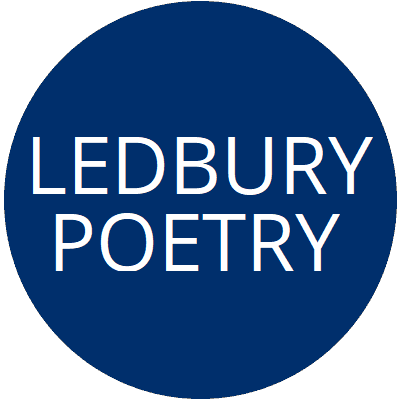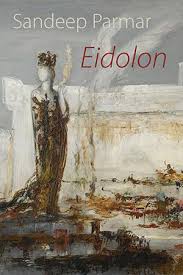The opening event of the 2019 Festival offers the opportunity to listen to the poets shortlisted for the Ledbury Forte Poetry Prize for Second Collections and hear the judges announce the winner. This format will no doubt add to the excitement of the occasion, but what makes this event special is the range and quality of the poetry.
Friday 5 July, 6pm – 7.15pm, Burgage Hall, £9.50 (or as part of the weekend pass £18)
Below the judges reflect on their shortlist and give insight into why these collections were selected.
Linda Gregerson writes:
Adam O’Riordan, A Herring Famine
Notable for their breadth of compassion and depth of historical imagination, the fine lyrics in A Herring Famine are also emphatically of their present moment. O’Riordan is a master of cadence and immediacy: his uses of musical echo are at once consolatory and subtly unsettling.
A. K. Blakemore, Fondue
Uninhibited, uncensored, dazzling in its varieties of rhetorical address, Fondue would seem to have reinvented the lyric from scratch. A. K. Blakemore is a magician of shimmering concision, fierce intellect, and disarming juxtapositions. She dares us to be joyful, and at risk.
Danez Smith, Don’t Call Us Dead
“Do you know what it’s like to live / on land who loves you back?” In the extended sequence that launches Don’t Call Us Dead, Danez Smith imagines just such a land for the black boys who have died by violence in our time: the violence of vigilantism, of police brutality, of stigmatized poverty and illness, of despair. From a bitter landscape, this unblinking sequence manages to wrest a celebration of black lives.
James Womak, On Trust: A Book of Lies
True to its title, On Trust: A Book of Lies explores the metamorphic landscapes of shifting allegiance and unstable epistemologies. Writing a cunning jazz line in one poem and a supple passage of lyric prose in the next, Womak matches limberness of method to his ambitious subject: the shifting instabilities of character, circumstance, and faith.
Rory Waterman, Sarajevo Roses
Very few poets can bring to the lives of others the same devout attention we tend to bestow upon ourselves: Rory Waterman is just such a poet. Whether their site of meditation is an abandoned colliery or a much-marketed urban vista, the exquisite lyrics of Sarajevo Roses are imbued with mindfulness. Suppleness of poetic line matches suppleness of spirit.
David Tait, The Aqi
The AQI, or Air Quality Index, is at once a measure of our depredations and our dependency, phenomena that David Tait meticulously traces throughout his wide-ranging new collection of poems. A suite of poems set in China sets the immanent unliveability of our planet in stark relief; an elegiac sequence to the victims of a hate crime in Orlando forges a powerful tribute to love.
Lachlan Mackinnon writes:
Weighing books against one another is harder than weighing individual poems. It sets the thin, perfected but limited volume against the expansive, ambitious and flawed—or so I feared. I needn’t have done. There were technically pleasing collections that were emotionally underpowered, but fewer that were bursting with feeling while technically naïve or ignorant. I looked to be moved by work that clearly needed the form it took. I also wanted work that snagged my imagination, work that made me go back to it for some inexplicable reason. Linda and I didn’t discuss such generalities, but we agreed very substantially on what we liked. One book on the shortlist wasn’t originally on mine, but Linda pointed it out and I realised that I had kept going back to it in the way I described. My stupid. I think our final shortlist shows how various achievement in younger poets’ work is now, and there isn’t a book on it I wouldn’t recommend. The extent of our agreement didn’t surprise me. Unless someone is obviously biassed, this usually happens. In the books we chose I find, in differing combinations, musicality, intelligence and acute observation (general or particular). A surprising proportion of entrants had creative writing degrees, but it didn’t show. Too many books had unsourced pre-publication puffs, a bad habit imported from the United States. The first readings were exciting, the second mostly so, and al the third and fourth. The poets not nominated should be aware just how strong the field was (and I know that’s what people say, but I thoroughly mean it). We deliberately didn’t seek to represent the field, but I think it turns out we pretty well have. I also learned how useful Skype is for transatlantic conversation. It was serious fun, like poetry itself.
Ledbury Poetry Festival announces the six collections shortlisted for the prestigious Ledbury Forte Poetry Prize for Second Collections published in Britain and Ireland in 2017 and 2018.
Judged this year by Lachlan Mackinnon and Linda Gregerson, the biannual prize is the first of its kind and aims to support and encourage ‘mid-career’ poets, with a £5,000 prize for the winner. The vibrant, diverse collections offer a reminder that in turbulent political times poetry – particularly those published by independent and small presses – continues to thrive and flourish.
The prize recognises that a poet’s second collection can be “dangerous, risk-taking liberating and wildly ambitious” according to Tom Chivers, Editor at Penned in the Margins, who says “I welcome a new prize for second collections, to shine a spotlight on work that might otherwise fall down the gap between the excitement of the new and the confidence of the established.”
The shortlisted poets will be invited to read at a Prize Giving event on Friday 5 July 2019 at Ledbury Poetry Festival when the judges, Lachlan Mackinnon and Linda Gregerson will announce the winner. In selecting the judges, Ledbury Poetry Festival consciously sought out poets who are not regularly judging prizes in the UK, in order to try to widen the spotlight and shine a light on poets whose collections might otherwise not receive their due in terms of attention and recognition. The result is a diverse and vibrant shortlist of poets who have not yet been picked out yet by major prizes.
Shortlist
- A K Blakemore Fondue (Offord Road Books)
- Adam O’Riordan A Herring Famine (Chatto)
- Danez Smith Don’t Call Us Dead (Chatto)
- David Tait The AQI (Smith Doorstop)
- Rory Waterman Sarajevo Roses (Carcanet)
- James Womack On Trust: A Book of Lies (Carcanet)
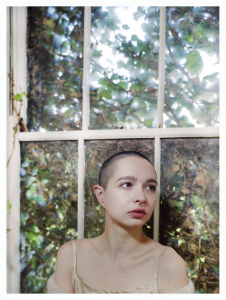
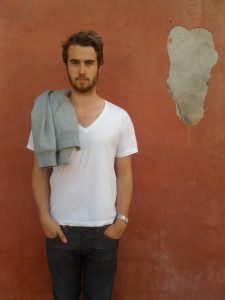


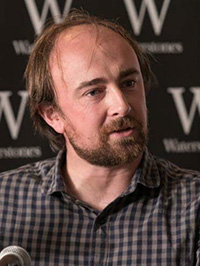

Ledbury Poetry Festival is pleased to announce that the Ledbury Forte Poetry Prize for second collections published in Britain and Ireland in 2017 and 2018 is open for submissions. The Judges are Lachlan Mackinnon and Linda Gregerson. The deadline for publisher submissions is Tuesday 30 October 2018 (books published in November and December 2018 can be submitted in proof form if necessary). Publishers should send three copies of each second collection to Chloe Garner, Ledbury Poetry Festival, The Master’s House, Bye Street, Ledbury HR8 1EA. One copy will be sent to each judge and one copy kept by Ledbury Poetry Festival for reference and publicity purposes.
This prize aims to support and encourage poets at the ‘mid-career’ stage, with a shortlist and a prize of £5000 for the winning second collection. In assessing the shortlisted second collections, the judges will also read the poets’ first collections and take account of how their work has developed from debut to second book. The shortlisted poets will be invited to read at a Prize Giving event on Friday 5 July 2019 at Ledbury Poetry Festival when the judges, Lachlan Mackinnon and Linda Gregerson will announce the winner.
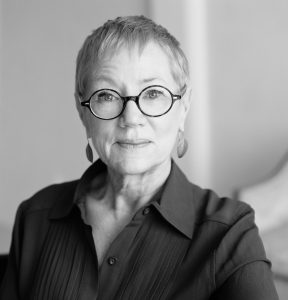

Ledbury Forte Poetry Prize Submission Form
Ledbury Forte Poetry Prize Submission Guidelines
Ledbury Forte Poetry Prize Announcement
JUDGES BIOGRAPHIES:
Lachlan Mackinnon
Lachlan Mackinnon lives in Ely. He is the author of five collections of poems including Small Hours, shortlisted for the Forward Prize for Poetry in 2010, and works of criticism and biography. His most recent collection Doves was published by Faber in 2017. He writes academically in English and French about Shakespeare and modern English and French literature. He is a regular reviewer for the national press, and received a Cholmondeley Award in 2011.
Linda Gregerson
Linda Gregerson is the author of six collections of poetry, most recently of Prodigal: New and Selected Poems (Houghton Mifflin Harcourt 2015). Among her earlier books, Magnetic North (2007) was a finalist for the National Book Award; Waterborne (2002) won the Kingsley Tufts Poetry Award; The Woman Who Died in Her Sleep was a finalist for both the Lenore Marshall Award and The Poets Prize. Gregerson has also received awards from the American Academy of Arts and Letters, the Poetry Society of America, the Modern Poetry Association, the Guggenheim Foundation, and the National Endowment for the Arts.
A successful publicity campaign for the prize in its inaugural year led to features in The Telegraph, which praised the shortlist and the prize for highlighting the importance and difficulty of writing a second collection, as well as The Bookseller, PN Review, Poetry News and extensively online. Tom Chivers, Editor at Penned in the Margins wrote, “Why must a poet’s ‘difficult second album’ be difficult? No: it can be dangerous, risk-taking, liberating and wildly ambitious. I welcome a new prize for second collections, to shine a spotlight on work that might otherwise fall down the gap between the excitement of the new and the confidence of the established.” According to The Telegraph “The Ledbury Forte Prize is the first of its kind: a biannual award for follow-ups, with a £5,000 purse. One might argue that the solution to prize culture’s problems isn’t more prizes (why not a gong for third collection, too?) but the Forte’s thrilling shortlist will silence the critics. Avant-garde and “conventional” lyrics rub shoulders. It feels dangerous, in the best way possible.”
Sandeep Parmar wins £5000 inaugural Ledbury Forte Poetry Prize for second poetry collections with ‘sharp, contemporary and lyrical’ Eidolon
Eidolon by Sandeep Parmar has today been announced as the winner of the inaugural £5000 Ledbury Forte Poetry Prize the UK’s first prize dedicated to second poetry collections. Published by independent press Shearsman, Sandeep Parmar’s Eidolon is partly a modern revision of the Helen myth, which meditates on the visible and invisible forces of Western civilization from classical antiquity to present-day America.
The winning collection was chosen by judges Vahni Capdeilo and Tara Bergin and announced at a special event on the first day of the 21st Ledbury Poetry Festival. Selected from a shortlist of six titles, Vahni Capildeo and Tara Bergin say ‘Sandeep Parmar’s Eidolon rises slightly above the rest in its combination of intimacy and sweep. The language is sharp and contemporary, but also very gentle in places, and lyrical. There are lines which seem to reach far back (to Whitman and Shakespeare and Sappho, and of course to the book’s basis in the Helen of Troy myths), and there are other sections which use the stilted language of contemporary reports and news and snatches of conversation. A strange and compelling mix.’
Sandeep Parmar is Senior Lecturer in twentieth-century literature and creative writing at the University of Liverpool, the Reviews Editor of The Wolf magazine and author of a critical book on Loy, Reading Mina Loy’s Autobiographies.
On winning the Prize, Parmar says ‘I’m very grateful to the judges and the festival for awarding Eidolon the Ledbury Forte Poetry Prize. For me, writing a second collection was liberating – I felt able to strike new ground and it took shape much more quickly than my first book. Eidolon is a conversation with the recent and remote past as well as the authors who shaped my thinking: Hilda Doolittle, C.D. Wright, Rachida Madani, Whitman, Euripides, among others.’
When Eidolon was published by Shearsman in January 2015, poet Valzhyna Mort said in Poetry International that the collection reflected the work of ‘a stunning poet arguing with the failing authority of her culture, the whole Silk Road curled up and hissing by her feet’.
Shortlist for Ledbury Forte Poetry Prize For Second Collections:
Judy Brown – Crowd Sensations (Seren)
John Clegg – Holy Toledo! (Carcanet)
Emma Hammond – The Story of No (Penned in the Margins)
John McCullough – Spacecraft (Penned in the Margins)
Sandeep Parmar – Eidolon (Shearsman Books)
Sam Riviere – Kim Kardashian’s Marriage (Faber & Faber)
From Sam Riviere’s Kim Kardashian’s Marriage to Emma Hammond’s The Story of No, the shortlist for the inaugural Ledbury Forte Poetry Prize announced today recognises the work of ‘serious writers’ and ‘ethical word-wizards’ whose poetry made judges ‘rethink what a book, or collection, of poetry can be’.
The shortlist for the £5000 Ledbury Forte Poetry Prize for second poetry collections, the first of its kind in the UK dedicated to poets’ second collections, was selected by judges Vahni Capildeo and Tara Bergin. The biennial Ledbury Forte Poetry Prize is a response to poetry’s increasing emphasis on debuts and seeks to shine a light on poets’ more accomplished, though often overlooked second collections, which can be poetry’s version of ‘the difficult second album’.
Judge and 2016 Forward Prize winner Vahni Capildeo, says ‘the shortlisted writers expanded my horizons. In re-reading, even more than first reading these collections, I was repeatedly taken out of myself, asking: Can language do this? Can imagination go there? How might the next poem, and the next, invite readers to be transformed? Each of these publications made me rethink what a book, or collection, of poetry can be. How do changes in the way we experience life and process information, via new technologies and twenty-first century predicaments, mesh (or not) with older (dare one say ‘universal’, or least widespread and widely-understood) modes of appreciation and expression? And what does it mean to reward a second collection? These writers are ethical word-wizards whose already astonishing poetry I want to endorse because I believe in its process of becoming’.
Poet and judge Tara Bergin says of the six titles on the shortlist that ‘every one of the writers shortlisted here strikes me as a ‘serious writer’ in the sense that John Berryman defined that term: ‘something of an inquisitor’, who encourages the reader to put to themselves the same questions about life that the author has put to him or herself.’
The Ledbury Forte Poetry Prize shortlist is entirely made up of collections published by independent publishing houses, including small presses. Chloe Garner, Artistic Director of Ledbury Poetry Festival notes that ‘this perhaps reflects the particular commitment of independent publishers to nurturing poets beyond their debuts and to supporting poets who take risks with their work, pushing their themes, style and language into new and exciting territories’. Garner adds, ‘fundamentally this prize is about bringing poets to readers and the range and quality of this shortlist means each book is a dazzling read.’
Ledbury Launches Ledbury Forte Poetry Prize For Second Collections
Ledbury Poetry Festival is launching a new poetry prize for second collections, to be given every two years and called the Ledbury Forte Poetry Prize worth £5000. The prize is for a second collection published in the previous two years. A shortlist of six books will be announced in June 2017 and published on the website. The winner will be announced at the 21st Ledbury Poetry Festival in July at a reading given by the winning poet and this year’s two main poet judges, Vahni Capildeo and Tara Bergin.
Tom Chivers, Editor at Penned in the Margins, says “Why must a poet’s ‘difficult second album’ be difficult? No: it can be dangerous, risk-taking, liberating and wildly ambitious. I welcome a new prize for second collections, to shine a spotlight on work that might otherwise fall down the gap between the excitement of the new and the confidence of the established.”
Ledbury Forte Poetry Prize Submission Guidelines
Ledbury Forte Poetry Prize Submission Form

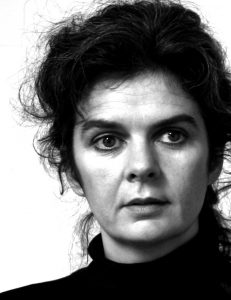
Neil Astley, Bloodaxe Books Editor, presents the rationale behind this new Prize:
‘It seems for some time that there’s rather too much focus now on first collections — and there are half a dozen prizes for first collections awarded in Britain and Ireland — or on “best collections” of the year (another half dozen prizes for those also), and that the one area given very little recognition and little appreciation of the struggles involved is the second collection, and poetry’s version of the “difficult second album” syndrome.
Poets who’ve made a splash with their debut collections are under pressure to produce a follow-up collection which builds on the achievement of the first, and yet when they do produce a much stronger second book, it very often gets much less attention and even sells fewer copies, even though it’s the better book. Or they may have said their piece in their debut book and the second collection is more or less a re-run of the first; and the publisher drops them when they submit the third collection MS a few years later, because their work hasn’t really gone anywhere. Second collections can be included on “best collection” prize shortlists, but rarely are. And if the poet is someone who has a job or other commitments, and hasn’t been able to assist much in promotion of their work, or do many readings, an excellent second collection may well be completely overlooked; and the discouragement that brings may affect where the poet goes from there.
So in order to create more interest in the “difficult second collection”, Ledbury Poetry Festival is launching this biennial second collection award, with a shortlist and a prize of £5000 for the winning second collection. At present there is funding to run the prize for six years (so three awards will be made, in 2017, 2019 and 2021, after which the Festival hope to raise more funding).’
Ledbury Poetry Festival gratefully acknowledges the generosity of Olga Polizzi whose contribution makes the Ledbury Forte Poetry Prize possible.
